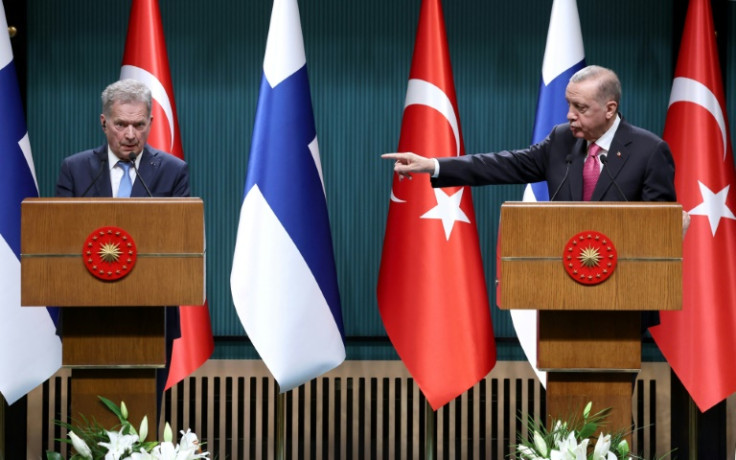Turkey's Parliament To Vote On Finland's NATO Bid

Turkey was set on Thursday to become the final NATO nation to approve Finland's membership of the US-led defence alliance in the wake of Russia's invasion of Ukraine.
Ratification is all but certain after President Recep Tayyip Erdogan ended months of negotiations and blessed Finland's candidacy earlier this month.
Erdogan controls parliament through an alliance with a right-wing party. Most opposition lawmakers also support the bid.
Turkey's ratification will leave Finland -- which has a 1,300-kilometre (800-mile) border with Russia -- with only a few technical steps before it becomes the 31st member of the world's most powerful military bloc.
Finland and its neighbour Sweden ended decades of military non-alignment and decided to join NATO last May.
Their applications were accepted at a June alliance summit but the bids still needed to be ratified by all the members' parliaments -- a process that stalled with Turkey and Hungary.
Erdogan put up stiff resistance to Sweden's candidacy because of a series of long-standing disputes.
The Hungarian parliament ratified Finland's NATO membership on Monday after months of diplomatically charged delay. It was expected to approve Sweden's bid during the current session ending June 15.
A spokesman for Hungarian Prime Minister Viktor Orban on Wednesday called on Sweden to "clear the air" and address "an ample amount of grievances" for parliament to ratify its bid.
Sweden still hopes to join the alliance in time for a July summit in Vilnius.
Most analysts believe that Turkey will only vote on its candidacy after the country's May general election.
NATO was created as a counterweight to the Soviet Union at the onset of the Cold War era that began immediately after World War II.
The bloc has gone through waves of expansion that brought it ever closer to Russia's borders.
Its reach into east and southern European countries that were once under Moscow's effective control infuriated the Kremlin and created growing strains in its relations with Washington.
President Vladimir Putin cited the threat of NATO expanding into Ukraine as one of his main reason for launching the war 13 months ago.
But the conflict has had the opposite geopolitical effect from the one envisioned by Putin.
Ukraine is now receiving tanks and other heavy weapons from NATO members that it hopes to use in a new counter-offensive planned for the coming weeks or months.
Finland never seriously discussed membership of the alliance until Putin went to war.
The Kremlin at first appeared to play down the significance of the bloc reaching a new stretch of Russia's northwestern border.
But Russia has stepped up its diplomatic rhetoric in recent weeks.
Stockholm this week summoned the Russian ambassador after he said Sweden and Finland would become a "legitimate target" of "retaliatory measures" -- including military ones -- if they join NATO.
Putin last weekend also announced plans to deploy tactical nuclear weapons in neighbouring Belarus.
The weapons create smaller explosions than conventional nuclear bombs and are intended for use on the battlefield.
© Copyright AFP 2024. All rights reserved.






